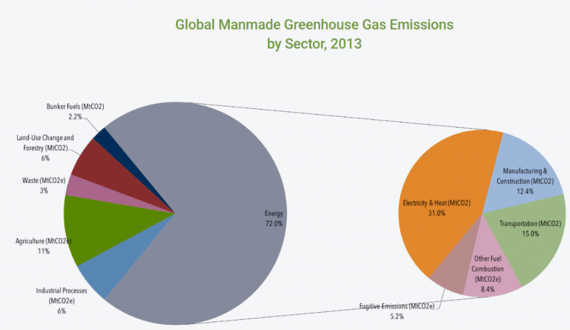Internationally, the coronavirus has impacted many aspects of our world, from the economy and our spending habits to our jobs and everyday routines. But what about our climate?
Yes, our ecological environment has been largely affected by COVID-19, too.
Decreased Greenhouse Gas Emissions
While COVID-19 has spread globally, governments have been forced to initiate social distancing and stay-at-home orders in an effort to stop the spread. These lockdowns have caused many industries and individuals to cease production and travel, causing a ripple affect in greenhouse gas emissions. Countries across the world are experiencing a drastic drop in greenhouse gas emissions, according to an article from the BBC. In fact, China has experienced a decrease by 25% in CO2 emissions. In the United States, New York has seen a decrease as low as 50% in CO2 emissions. Other major countries seeing similar decreases in CO2 and NO2 emissions include Italy, Spain, and the United Kingdom.
While this decrease appears to be some much-needed good news during the pandemic, scientists and ecological specialists are skeptical that these drops in emissions are going to have any lasting effects. If these drops in emissions are caused from a decrease in manufacturing and travel, then what will happen after the virus has been contained, when production increases and daily travel routines return?
“The fight against pollution is a long-distance race, not a sprint,” said Xavier Querol, a science researcher specialized in atmospheric pollution. Essentially, this means the sudden drops in emissions happening across the globe are temporary and if we truly want to see a lasting positive effect in greenhouse gas emissions, we must look to other solutions.
A Closer Look at Energy Consumption
The majority of greenhouse gas emissions (72%) can be attributed to energy. Of that 72%, the manufacturing and transportation sectors together make up 27.7%, which is the main contributor to the decrease in greenhouse gas emissions that are being experienced around the world due to COVID-19 restrictions.
However, it is not feasible to assume that these emission levels are going to remain where they are once the coronavirus restrictions are lifted. Therefore, we must look to the highest contributor of energy consumption, which is electricity and heat, and find solutions to decrease emissions.
Currently, there are many companies creating technology to support the goals of lowering emissions, slowing climate change, and lowering energy consumption. Melink Corporation, a leader in Zero-Energy buildings, offers five energy solutions to help create healthy buildings and lower energy consumption:
- HVAC Test & Balance
- Intelli-Hood®, a demand control kitchen ventilation system
- PositiV®, a building health monitor system
- Solar Power
- Geothermal HVAC
Each one of these services not only helps to create a sustainable world for future generations but also serves as a cost-saving opportunity for businesses to implement.
Coronavirus and Climate Change
In summary, what is coronavirus teaching us about how to decrease climate change? Well, that’s a loaded question that cannot be answered fully. But the solution starts with decision makers, business owners/operators, and individual consumers. If any good can come from this pandemic, maybe it’s how our perspective is changing. Now, perhaps more than ever, we see the importance of preserving this world that we all know and love — not just maintaining our current environment — and ensuring future generations are set up for success. We can do better when it comes to climate change, whether coronavirus is in the picture or not.
Contributed by Jeremy Neff

